War and Conquest: Analyzing Game of Thrones Themes
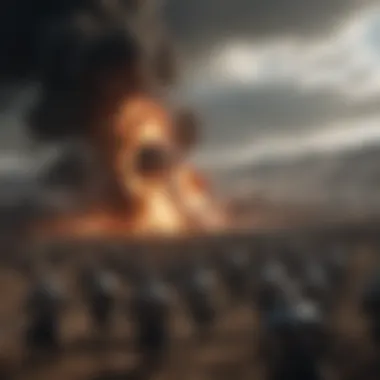
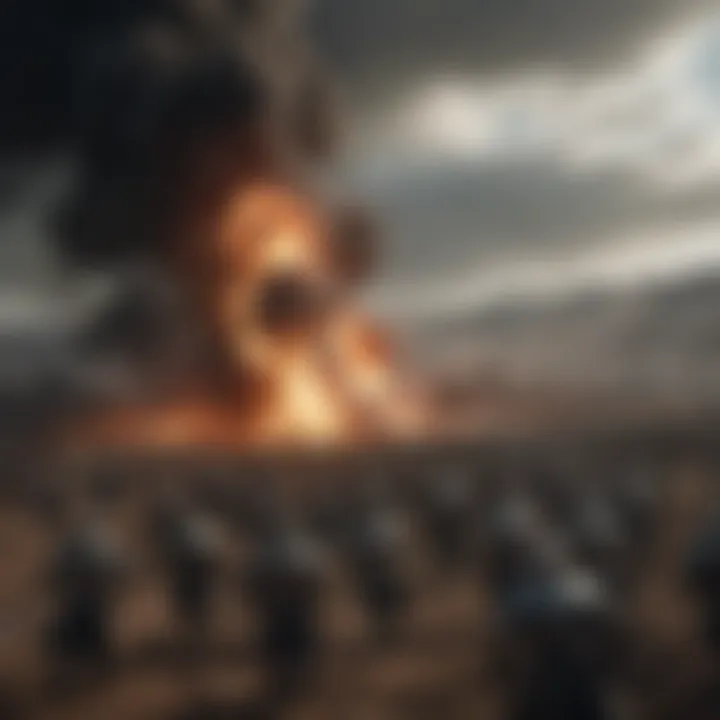
Intro
The Game of Thrones universe is marked by its complex portrayal of war and conquest. The series presents violence not merely as an action but as an instrument through which power dynamics unfold. The narrative draws heavily on historical precedents, depicting battles, alliances, and betrayals that shape the fates of individuals and nations alike. In this examination, we will explore key themes related to war, including characters whose lives are intricately intertwined with the conflicts that define Westeros.
Understanding how war influences character arcs and societal changes is crucial. It is this intricate dance between warfare and personal ambition that invites viewers to grapple with the moral ambiguities of existence in a world governed by power struggles.
Character Dissections
Key Characters and Their Roles
In the Game of Thrones narrative, several characters embody the themes of war and conquest. Each character has unique motivations that often intertwine with the larger fabric of conflict in Westeros. Notable figures includes:
- Eddard Stark: His sense of honor leads him into dire situations, illustrating how moral integrity can be tested in times of war.
- Daenerys Targaryen: Her quest for the Iron Throne embodies the essence of conquest, as she seeks to reclaim her birthright, often disregarding the consequences of her actions.
- Cersei Lannister: Representing ambition and ruthlessness, Cersei's actions demonstrate how personal vendettas can escalate into broader conflicts that engulf nations.
Character Development Throughout the Series
The evolution of these characters is a reflection of the changing tides of war.
For example, Sansa Stark transforms from a naive girl into a calculating leader, shaped by her experiences of betrayal and survival in a war-torn environment. Similarly, Jaime Lannister’s journey from a seemingly arrogant knight to a figure facing moral dilemmas illustrates the war's transformative effects on identity and loyalty.
Impact on the Overarching Storyline
The choices made by these characters significantly affect the overarching narrative. Each battle or alliance they forge holds repercussions that resonate throughout the series. Key events, such as the Red Wedding or the Battle of the Bastards, highlight how personal stakes intertwine with epic confrontations, culminating in shifts in power and social structures.
Through detailed character studies, it becomes clear that war in Game of Thrones is not just about territory or conquest but is deeply rooted in the personalities and choices of its characters. Their development underlines the profound implications that conflict carries—not just for themselves but for the world around them.
"War is the continuation of politics by other means," a sentiment echoed in the strategic maneuvers of characters like Tyrion Lannister.
Episode Breakdowns
Each episode of Game of Thrones encapsulates significant events that reflect the ongoing themes of war and conquest. An analysis of these episodes reveals how battles, both on the field and in the courts, serve to propel the narrative forward and deepen the viewer's understanding of the characters’ complex motivations.
Significant Events Recap
Major confrontations, such as the Battle of Blackwater and the Siege of Meereen, showcase not only physical struggles but also the strategic minds behind them. Key moments often interweave personal stakes with broader political implications, inviting viewers to reflect on the costs of ambition.
Themes and Symbolism
Recurring themes, such as the price of power and the fragility of alliances, echo throughout the series. Significant symbols, including the Iron Throne itself, serve as a material representation of the struggles for supremacy, emphasizing that the pursuit of power ultimately leads to conflict.
delving into the motivations behind key battles highlights the complexity of each character's choices and underscores the precarious nature of their fates.
To continue this analysis, the exploration of the rich lore and history that informs these characters and conflicts must be addressed next.
Prelude to War and Conquest in Westeros
Understanding war and conquest within the context of Westeros is essential for grasping the deeper themes of the Game of Thrones universe. The series does not merely showcase battles but rather delves into the motivations, consequences, and philosophies behind these conflicts. Through the exploration of various wars, one can gain insights into the nature of humanity itself. This article seeks to unravel these complex elements surrounding warfare and conquest, providing readers with a clearer perspective on how conflicts shape characters and societies in this fictional realm.
Defining War and Conquest
War is generally defined as a state of armed conflict between different nations or groups within a nation. In Westeros, this takes various forms, from vast armies clashing on battlefields to subtle political maneuvering behind closed doors. Conquest, on the other hand, refers to the act of taking control of a country, territory, or people, often through military force. In the Game of Thrones universe, both war and conquest are not only physical endeavors but also mental struggles that reflect ambitions, greed, and the quest for power.
These definitions highlight that warfare is multifaceted, involving strategy, ethics, and the socio-political landscape.
Cultural Context of Warfare
In Westeros, the cultural context is vital for understanding why wars are fought. Honor, loyalty, and betrayal are foundational ideals that shape the motivations of characters. The feudal system defines allegiances, as noble houses vie for power and influence. Many wars stem from family disputes, a desire for revenge, or the pursuit of honor.
The importance of lineage often dictates the course of conflicts. Houses like Stark, Lannister, and Targaryen showcase how bloodlines influence claims to the Iron Throne. For the inhabitants of this world, battles serve not only as physical confrontations but as reflections of personal vendettas and collective identities.
The psychological impact of these cultural elements cannot be underestimated. Loyalty to one’s house drives characters into conflicts that often have tragic ends. Decisions made in the heat of battle can haunt characters, affecting their actions long after the warriors lay down their swords.
Moreover, the role of prophecy and religion adds another layer of complexity to the motivations behind warfare. The beliefs and narratives that characters buy into can mobilize entire armies and justify actions taken in the name of conquest.
Historical Precedents: War in Westeros
Understanding the historical precedents of war in Westeros is essential for grasping the complexity of the Game of Thrones narrative. The conflicts within this universe do not exist in isolation; rather, they are shaped by events from the past that provide context and depth to the actions and motivations of characters. This section explores the significant conflicts that have laid the groundwork for the power struggles depicted in the series.
The War of the Usurper
The War of the Usurper is a pivotal conflict within the history of Westeros. This event marked the overthrow of the Targaryen dynasty, which had ruled for nearly three centuries. Robert Baratheon, backed by multiple houses, rebelled against King Aerys II. The war is notable not just for its outcome but for the dynamics it introduced into Westerosi politics.
The motivations for this war were multifaceted. Robert's claim was rooted in a blend of personal vendetta and widespread discontent with Aerys' tyrannical rule. The brutality exercised by Aerys, especially during the execution of Rickard and Brandon Stark, rallied various factions against him. This conflict established a precedent where personal ambitions intertwined with noble causes, leaving a long-lasting impact on the realm.
As a result of the Usurper's War, the landscape of Westeros changed significantly. House Baratheon ascended to the throne, but this shift was accompanied by numerous betrayals and aligned loyalties, which would continue to manifest in subsequent conflicts. The repercussions of this war reverberated through generations, influencing tactics, alliances, and the concept of legitimacy in rulership.
The Pre-Game of Thrones Conflicts
Before the events that unfold in the series, Westeros was no stranger to war. Conflicts such as the Dance of the Dragons and the Blackfyre Rebellions played significant roles in shaping the political landscape of the seven kingdoms. These earlier wars not only established historical enmities but also influenced the strategies of the ruling houses.
- The Dance of the Dragons featured a civil war between two factions of House Targaryen over the Iron Throne. This conflict showed the precariousness of power and the impact of divided loyalties within a single house.
- The Blackfyre Rebellions represent the struggles presented by illegitimate heirs trying to claim the throne. This recurring issue reflects an ongoing theme of legitimacy and governance that resonates throughout the series.
The cumulative effect of these conflicts created a culture steeped in warfare. The houses grew to understand the necessity of alliances and sometimes treachery as a means to secure power. The bloody history and character of Westeros are thus directly influenced by these precedents, making them crucial for any detailed analysis of war and conquest.
"War was a part of life in Westeros, often made more complex by the legacies of past conflicts and the ever-shifting loyalties of its houses."
By examining the historical precedents, one begins to acknowledge how deeply rooted these themes of war and conquest are in the fabric of Westeros. This background is not merely contextual but serves as an integral framework for understanding the unfolding narratives that captivate the audience, turning each conflict into a vital component of the greater story.
Thematic Analysis of Conflict
The examination of war and conflict in the Game of Thrones universe extends beyond mere battles or military victories. Rather, it serves as a lens through which the complexities of power, ethics, and societal evolution are explored. Thematic analysis enriches our understanding of the narrative by revealing how intertwined the concepts of conflict and character development are, shedding light on how individual choices are often a reflection of larger political dynamics.
War as a Catalyst for Change
War in Westeros frequently functions as a significant catalyst for change. Not only does it alter the political landscape, but it also reshapes the very fabric of society. Major events, such as the War of the Five Kings, lead to shifts in power dynamics and the formation of new alliances. These transformations are often portrayed through the struggles of key characters, whose ambitions and desires evolve amid chaos.
"> "Conflict does not just divide people; it can also unite them in pursuit of a common goal."
In this universe, war forces characters to confront their values and beliefs. Take, for example, Daenerys Targaryen. Her journey from a timid girl to a formidable leader is marked by the wars she engages in. Each conflict molds her character, illustrating how warfare can serve as a crucible, refining convictions and altering trajectories. The repercussions of war are not confined to the battlefield but resonate throughout the realm, influencing social structures and altering individual paths.
Morality and Ethical Dilemmas
The portrayal of war in the Game of Thrones series is fraught with moral complexities and ethical dilemmas. Characters often find themselves at crossroads where their loyalty to their house conflicts with their personal beliefs. The series presents warfare not as a glorified spectacle but as a harrowing reality filled with ambiguous motivations and dire consequences.
Characters like Tyrion Lannister and Jon Snow embody the struggle between personal ethics and the harsh demands of leadership. Their experiences highlight the weight of decisions made in the heat of battle. Jon's choice to ally with the wildlings reflects a significant internal conflict, pitting duty against what he believes is morally right.
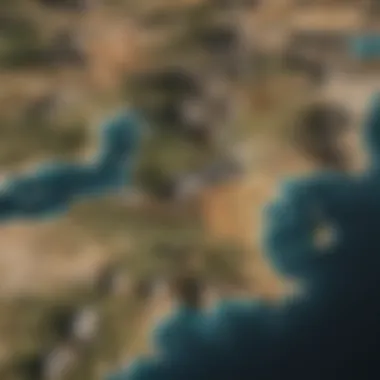
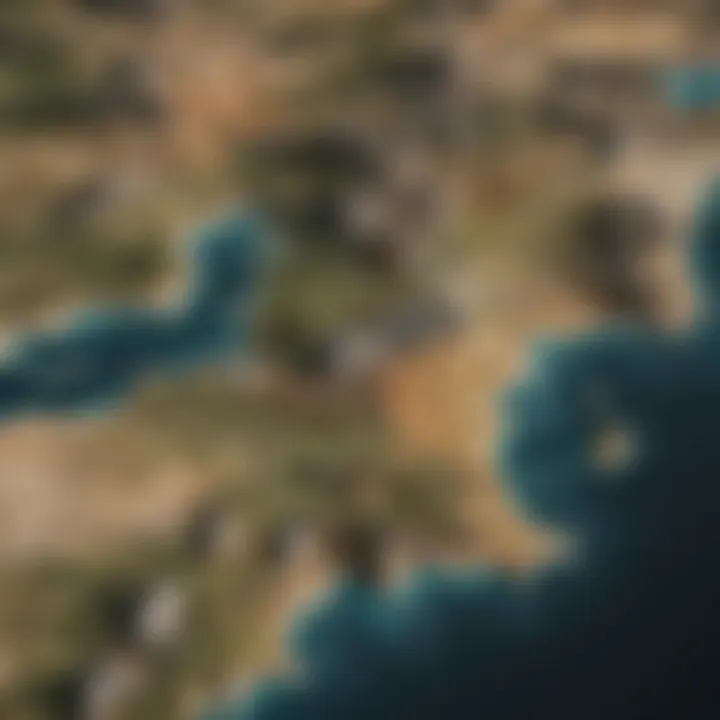
War forces these characters to grapple with the concept of righteousness. Is the pursuit of power worth the cost of innocent lives? This question resonates through the actions of those who lead armies and those who simply survive within the ashes of war. It underscores the tragedy of the human condition, revealing that the line between hero and villain is often blurred in times of conflict.
Major Battles and Their Impact
The major battles in the Game of Thrones universe serve as pivotal moments that shape the narrative and characterize the essence of warfare in Westeros. Each confrontation carries significant weight, influencing political dynamics, character arcs, and societal structures. By examining these battles closely, we gain insights into the intricate relationships between conflict and its outcomes, presenting a deeper understanding of how power shifts throughout the series.
Battle of the Blackwater
The Battle of the Blackwater stands out as a defining conflict in the Game of Thrones series. This showdown highlights not only strategic military engagements but also the frank realities of leadership and alliance in warfare.
Strategic Importance
The strategic importance of the Battle of the Blackwater lies in its bold defense of King's Landing. Stannis Baratheon's attempt to seize the Iron Throne through this maritime battle showcases the critical role of naval power in medieval warfare. Without the defense led by Tyrion Lannister, the fate of King's Landing would have been drastically different.
The key characteristic of this battle is its innovative use of wildfire, a substance that plays a critical role in repelling the enemy. The striking nature of wildfire creates a unique scenario, enabling a smaller force to stand against a larger one, illustrating the advantages of intelligence and cunning over sheer numbers.
The advantages of analyzing the battle's strategic elements include an understanding of the nature of alliances and the importance of resourcefulness in warfare. However, one disadvantage is that such a strategy may foster underestimation of brute force which can overwhelm tactics in certain circumstances.
Political Ramifications
The political ramifications of the Battle of the Blackwater are profound. This clash reaffirms the Lannister's hold on the Iron Throne, showcasing how battles can reshape ruling powers. Tyrion's successful defense earns him respect, but it also sets the stage for future conflicts fueled by ambition and revenge.
The key characteristic of these repercussions stems from the shifting loyalties among the noble houses. Leaders now recognize that victory on the battlefield can significantly alter their political standing, often affecting their alliances.
This battle depicts the fragility of power in Westeros. While winning this battle provides an advantage, it also cultivates further ambitions and vendettas among those who aimed to claim authority. One unique element here is that while political power seems affirmed, it also becomes increasingly tenuous, fraught with emerging threats and rivalries.
The Battle of the Bastards
The Battle of the Bastards, fought between Jon Snow and Ramsay Bolton, presents a visceral clash with intense emotional and narrative stakes. It serves as both a military engagement and a crucial touchstone for character evolution.
Character Development
Character development is significantly marked during the Battle of the Bastards. This event encapsulates Jon Snow's growth as a leader. Jon's decisions and actions during this battle express his principles, driving him to unify disparate forces against a common enemy.
The key characteristic here is the embodiment of honor and duty exemplified by Jon. His commitment to rallying the North reflects a transition from the disheartened leader into one who takes decisive action.
A unique feature of this character evolution is the personal narrative intertwined with the battle. It is not merely a quest for territory, but rather, a fight for the very souls and legacies of his followers. However, while Jon grows, Ramsay’s portrayal reveals a descent into madness and cruelty, contrasting with Jon’s morality.
Historical Significance
The historical significance of the Battle of the Bastards resonates deeply throughout Westeros. This confrontation signals a major shift in power dynamics, as it effectively ends Ramsay Bolton's reign of terror. Jon's victory not only restores House Stark in Winterfell but also symbolizes the resilience of the North against oppressive rule.
The key characteristic of this historical moment involves the re-establishment of familial and regional loyalty. It demonstrates the cyclical nature of power and the enduring desire for justice.
A unique aspect of this battle lies in its broader implications for the series' overarching narrative. It underscores how individual battles can break cycles of tyranny. Thus, the lessons from this conflict play a role well beyond the battlefield itself, influencing future challenges for the remaining houses and setting the stage for ongoing struggles in Westeros.
The Role of Leadership in Warfare
Leadership plays a crucial role in warfare within the Game of Thrones universe. A leader's decisions can influence the outcome of battles, the loyalty of troops, and ultimately, the fate of kingdoms. In the intricate web of political maneuvering and military strategy, effective leadership becomes a lynchpin, determining the continuity or downfall of dynasties. The dynamic interplay between leadership styles, military acumen, and the moral dilemmas faced by those in power shapes the understanding of conflict in Westeros. This section focuses on two critical elements: the influence of kings and queens as military leaders and the moral implications between tyranny and benevolence.
Kings and Queens as Military Leaders
In the Game of Thrones series, rulers often bear the burden of leading their armies into battle. Leadership is more than just royal blood or titles; it requires strategic vision, charisma, and the ability to inspire. Kings and queens like Robb Stark, Daenerys Targaryen, and Stannis Baratheon exemplify varying degrees of military effectiveness and leadership traits.
- Robb Stark displays strategic brilliance, particularly in the early battles of the War of the Five Kings. His ability to unify the North and coordinate attacks showcases his tactical mind. However, his decisions sometimes stem from youthful naivety and idealism, leading to tragic outcomes.
- Daenerys Targaryen represents a different facet of leadership. Her journey from exile to military commander reveals how empathy and vision can serve as strong motivators. Her use of dragons not only shapes the battlefield but also signifies a departure from traditional warfare.
- Stannis Baratheon, on the other hand, embodies the austere side of leadership. His rigid adherence to duty and his misguided reliance on Melisandre’s prophecies lead to questionable choices, ultimately isolating him from potential allies.
Effective leadership encapsulates much more than mere participation in battles. It intricately entwines with personal character, public perception, and the ability to navigate complex human emotions. Leaders must strike a balance between military necessities and ethical responsibilities.
Tyranny Versus Benevolence
When discussing leadership in wartime, one cannot overlook the moral complexities that arise. The dichotomy between tyranny and benevolence fundamentally shapes the relationships between leaders and their subjects. Tyrannical leaders, like Joffrey Baratheon, often rule through fear and oppression. Their reign may bring immediate control but breeds long-term resentment and rebellion.
Conversely, benevolent leaders can inspire loyalty and courage. For example, Jon Snow's leadership style is characterized by a sense of honor and shared burdens. He builds alliances by placing value on human life and dignity, which fosters a strong sense of community among his followers.
However, the line between tyranny and benevolence can blur. A leader may start with good intentions and yet, faced with the pressure of war, make choices that lead them toward despotism. The moral implications of these choices reflect back on the leader's legacy and show that the burden of leadership is laden with difficult choices and unpredictable consequences.
"The true test of leadership is how well you function in a crisis."
Understanding leadership in the context of warfare requires an analysis of each leader’s intent, methods, and the socio-political environment within which they operate. It is this examination that allows one to appreciate the complexities and responsibilities that accompany the role of a military leader in Westeros.
The Consequences of Conquest
The theme of conquest in the Game of Thrones universe extends beyond mere victories and territorial gains. It fundamentally reshapes the very fabric of society, instilling fear, altering power dynamics, and creating a legacy that endures long after the swords have been sheathed. Understanding the consequences of conquest is critical for grasping the intricate narrative arcs and character developments throughout the series. Firstly, conquest invariably initiates changes in social structures, affecting everything from governance to societal hierarchies. Secondly, there exists a profound psychological toll on characters involved in warfare, as the emotional and mental aftermath can dictate future decisions and relationships.
Social Structure Changes
Conquest impacts social structures drastically. As one house triumphs over another, the established order is disrupted. Lords and ladies may lose their lands, while commoners find their lives transformed, often for the worse. The new leaders may enforce different laws or customs, leading to unrest among the populace. For example, after the War of the Five Kings, several regions experience significant shifts in local power dynamics. The Stark family, once ruling over the North, faces challenges in maintaining their authority due to the shifting alliances and resentments born from war.
This leads to a redistribution of power. New feuds emerge, and old loyalties can become obsolete, as former allies may turn into rivals. Each victory can create a vacuum; someone must fill that void.
Some specific outcomes include:
- Dissolution of Old Alliances: With the fall of a house, loyal bannermen may lose their status and seek new partnerships.
- Emergence of New Rulers: The victor often imposes their authority, leading to a new governance style, which may resonate with or alienate the local population.
- Tribal and Social Tensions: Conquests often exacerbate divisions, especially around cultural or ethnic lines, causing enduring conflict.
Changes in social hierarchies reflect the overarching themes of power and survival. The effects are profound and often lasting, marking the landscape of Westeros with scars and resentments that future generations must confront.
Psychological Toll on Characters
The psychological impact of conquest is profound and multifaceted. Characters experience a range of emotions, from victory-induced euphoria to profound grief after losses. Such experiences influence their future actions and decisions significantly.
For instance, the psychological burden displayed by characters like Jon Snow and Daenerys Targaryen illustrates this toll. Having attained power through conflict, both grapple with the weight of their choices, often leading to internal conflict and moral dilemmas. The consequences can manifest in various ways:
- Post-Traumatic Stress: Characters may exhibit signs of trauma, affecting their relationships and ability to lead.
- Isolation in Power: Those in positions of power may feel isolated due to the harsh choices they must make, distorting their view of loyalty and trust.
- Descent into Madness: In some cases, characters may unravel under the weight of their past actions, leading to unpredictable and often disastrous results.
The interplay between emotional stability and the choices made during conflict reveals the intimate connection between warfare and psychological well-being. As alliances shift and battles rage, the human cost of conquest continues to ripple through the very essence of character development, showcasing that war is not just fought with swords but also with the minds and hearts of those involved.
"Sometimes, the greatest battles are the ones we fight inside ourselves."
The Influence of Religion on Warfare
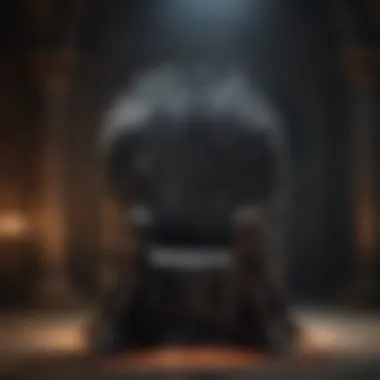
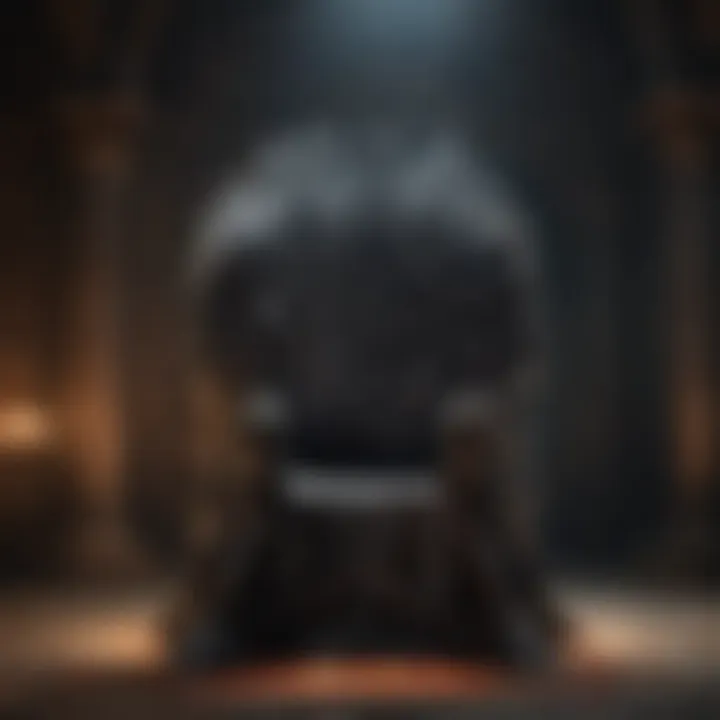
Religion plays a significant role in shaping the landscape of warfare within the Game of Thrones universe. At its core, faith can unite and motivate people to fight for a common cause, often leading to brutal conflicts. The following analysis focuses on two prevalent religious influences in Westeros: The Faith of the Seven and the Lord of Light. Each of these belief systems offers a unique perspective on how religion intertwines with warfare, influencing both the combatants and the outcomes of their struggles.
The Faith of the Seven
The Faith of the Seven stands as the dominant religion in the Seven Kingdoms. This belief system emphasizes a moral code that intertwines with the societal hierarchy. It teaches virtues like honor, loyalty, and justice, which are appealing to the nobility. In times of war, this faith provides justification for actions, often depicting battles as conflicts of good versus evil.
Royalty and common folk alike turn to the Faith for guidance, looking to the Seven - the Father, the Mother, the Warrior, the Maiden, the Smith, the Crone, and the Stranger - for support. Rituals and symbols associated with the Seven unite the people, especially in moments of turmoil.
Some significant points include:
- Rituals before battles: Leaders often seek the blessings of the Seven, believing that divine intervention can tip the scales of fortune.
- Moral justification: The Faith provides a framework within which to deem certain actions righteous, influencing decisions made on the battlefield.
- Public support: The religious fervor stemming from the Faith can rally troops, giving them a sense of purpose driven by divine mission.
"At the heart of every conflict lies a struggle that is not merely political, but also spiritual."
The Lord of Light and Conquest
In contrast, the worship of the Lord of Light introduces a more fiery and potentially aggressive nature to religious influence in warfare. Followers of this faith believe in a continual battle between light and darkness, and this duality is reflected in their strategies during wars. Melisandre, a key character associated with the Lord of Light, exemplifies the fervor and manipulation that can arise from this belief.
Characteristics of the Lord of Light’s influence on conflict can be observed in:
- Prophetic visions: Followers, particularly those like Melisandre, are often guided by visions that shape military strategy and objectives.
- Sacrificial rituals: The idea that sacrifice can please the Lord and secure victories leads to morally ambiguous decisions that complicate the ethics of warfare.
- Recruiting champions: The faith attracts warriors who believe they are chosen to fight for the sake of light, encouraging a zealous approach to combat.
While the influence of religion in the Game of Thrones universe often leads to cohesion and unity, it can also manifest as fanaticism, driving people to extremes. Understanding these religious dynamics adds depth to the narrative, providing insight into character motivations and the societal implications of conflict.
Alliances and Betrayals
The complex dynamics of alliances and betrayals profoundly shape the narrative force in the Game of Thrones universe. In Westeros, the very fabric of society is woven with the ambitions of various houses. Alliances often serve as a means to secure power and influence, while betrayals act as catalysts for conflict and change. Each decision made regarding these collaborations reflects deeper themes of loyalty, strategy, and the brutal reality of political survival.
Marriage Alliances
Marriage alliances in Westeros act as significant tools for cementing relations between noble houses. Through these unions, families tie their fates together, promising mutual defense and shared resources. These alliances can be extremely strategic, often arranged to unite houses in the face of common enemies or to strengthen claims to thrones.
For instance, the union between House Lannister and House Baratheon via Cersei Lannister and King Robert Baratheon exemplifies a marriage designed to secure power. It showcases how personal relationships become intertwined with political machinations. On the other hand, these alliances can also lead to tension or conflict. When marriages fall apart, the resulting friction can erupt into full-scale war. This is depicted in the fallout from Cersei and Robert’s marriage, emphasizing that not all unions yield the desired outcomes.
- Benefits of Marriage Alliances
- Strengthens house connections
- Unites resources, troops, and power
- Enhances territorial claims or legitimacy
While the perks are visible, one must also consider potential drawbacks:
- Considerations Against Marriage Alliances
- Risk of betrayal as allegiances shift
- Domestic strife can weaken external unity
- The potential for romantic conflict within the alliances can destabilize arrangements.
Unexpected Treachery
Unexpected treachery in Game of Thrones underscores the perilous nature of trust in a world where ambition reigns. Allegiances frequently shift, revealing that loyalty is often a commodity. The betrayals are not merely sudden acts of disloyalty; they are often calculated moves that expose the fragility of power.
For example, Petyr Baelish’s manipulation of various houses illustrates how cunning can undermine seemingly strong alliances. His betrayals show that beneath the surface of established loyalties, personal ambition drives actions, leading to disastrous outcomes for many characters involved.
"The last thing you want to see is someone behind you who you assumed was your ally in the shadows."
Moreover, these acts of treachery highlight the volatile balance of power. Betrayals can dismantle alliances overnight, which adds layers of complexity to the narrative. Characters, caught in their plans, often find themselves at the mercy of unforeseen treachery, altering the course of history in Westeros.
In summary, understanding alliances and betrayals in the Game of Thrones universe holds significance beyond mere power plays. It delves into human motivations, societal structures, and the inherent danger of trusting others in a world dominated by conflict and ambition.
The Role of Strategy and Tactics
The complexity of warfare in the Game of Thrones universe cannot be overstated. Strategy and tactics are pivotal to the outcomes of battles and campaigns. Without a solid plan, armies are bound to suffer losses, even in seemingly favorable conditions. This section analyzes the nuances of strategic planning and tactical execution, detailing how they influenced the various conflicts within Westeros.
Siege Warfare
Siege warfare is a central element in Game of Thrones. It involves surrounding a fortification to compel surrender or starve out the occupants. The most prominent example is the Battle of the Blackwater, where Stannis Baratheon attempted to take King's Landing using naval blockades and ground assaults. Yet, the Lannisters had planned extensively. They made use of wildfire, which contributed immensely to their victory.
Sieges require more than just brute strength. They demand careful resource management and timing. Here are important elements to consider:
- Logistics: Continuous supply lines are crucial. An army must have the means to withstand a siege while maintaining morale and discipline.
- Defensive Preparations: The defenders must utilize their terrain strategically. City walls, provisions, and strong leadership play key roles.
- Psychological Warfare: Misinformation and threats can demoralize troops. Siege warfare often turns on the psychological state of both besiegers and defenders.
Success in siege warfare often hinges on the ability to execute plans flawlessly. For instance, the unexpected use of wildfire not only decimated enemy ships but also instilled fear, proving that adaptability is vital.
Guerrilla Tactics and Their Effectiveness
Guerrilla warfare features smaller, flexible groups that use hit-and-run tactics against larger forces. In Game of Thrones, this method appears when characters like Robb Stark engage Lannister forces. Instead of conventional battles, he employs ambushes and quick strikes, exploiting the terrain and his knowledge of the land to overcome larger forces.
Several advantages make guerrilla tactics effective:
- Mobility: Smaller units can move swiftly, using their agility to evade direct confrontations.
- Local Knowledge: Familiarity with the terrain allows for strategic advantages in skirmishes and ambushes.
- Element of Surprise: Sudden attacks can catch larger armies off guard, disrupting their plans and creating chaos in their ranks.
However, it is important to note that such tactics are not without risks. Prolonged guerrilla campaigns can lead to civilian suffering and loss of support, as seen with certain factions in the series. Adopting guerrilla tactics requires a clear understanding of their impact on the broader conflict.
"In warfare, the use of strategy and tactics can be the difference between victory and defeat. This is highly evident in the decisions made by characters throughout the series."
The Aftermath of War
The aftermath of war holds immense significance in the Game of Thrones narrative. Each conflict leaves a profound impact, deeply altering the landscape of Westeros. The effects of war extend beyond the immediate destruction; they permeate the very fabric of society. Understanding the aftermath uncovers themes related to rebuilding, the persistence of unresolved conflicts, and the long-term consequences of power struggles.
Rebuilding Societies
Rebuilding societies after a war is a daunting task. In Westeros, the wreckage of battles like the Battle of the Blackwater or The Battle of the Bastards reveals the intricate struggle that follows. Leaders must contend with a lack of resources, fractured communities, and deep-seated divisions among former allies and enemies.
- Infrastructure: The physical damage to castles and cities has a lasting effect. Reconstructive efforts often lead to shifts in power dynamics among houses. New rulers may also emerge from the rubble.
- Social Cohesion: The war changes relationships among the populace. Trust can erode under the weight of betrayal, while alliances formed during conflict might not withstand the test of peace.
- Economic Recovery: The economy faces turmoil post-conflict. Trade routes can be disrupted, leading to famine or poverty, causing further societal strain.
Rebuilding in this context is not merely about physical restoration. It involves a significant effort to heal wounds, address grievances, and foster a sense of unity. As Tyrion Lannister once said, "A mind needs books as a sword needs a whetstone, if it is to keep its edge." This illustrates the importance of knowledge and strategy in reconstruction efforts, ensuring that the mistakes of the past do not repeat.
Unresolved Conflicts
Not all battles conclude neatly. The aftermath can leave lingering tensions and unresolved conflicts that fester over time. This is particularly evident in Westeros, where vengeance and honor shape many characters' motivations.
- Legacy of Blood Feuds: Families like the Starks and Lannisters carry grudges, and unresolved issues from past wars can erupt anew. The concepts of honor and revenge dictate actions long after the war ends.
- Political Unrest: In a power vacuum, various factions vie for control, leading to instability. The unresolved conflicts can spark new battles as different houses attempt to assert dominance or reclaim lost power.
- Emotional Trauma: The psychological toll on soldiers and civilians alike is immense. It transforms individuals, creating new conflicts within communities as they grapple with the memories of war.


"The true enemy is not the man who sits before you, sword drawn, but the memories that haunt you when the battle is done."
Cinematic Representation of War
The cinematic representation of war in the Game of Thrones universe plays a critical role in shaping the narrative. It offers viewers a visceral understanding of the chaos, brutality, and scale of conflict. By employing sophisticated visual storytelling techniques, the series does more than just depict battles; it immerses the audience in the realities faced by characters involved in warfare. This representation has profound implications on how viewers interpret the motivations and consequences of various conflicts throughout the story.
Visual Storytelling Techniques
The visual storytelling techniques used in Game of Thrones include a variety of components. These elements combine to effectively convey the magnitude of warfare. For instance, the use of cinematography and sound design heightens the emotional impact of battle scenes. Sweeping shots of vast armies clash together evoke a sense of scale that feels overwhelmingly real. The close-up shots of soldiers' expressions can illustrate their fear or determination, creating an emotional connection to the audience.
Particularly noteworthy is the use of color grading, which shifts the tone of battles. Dark colors often signify impending doom while brighter hues may be employed during moments of triumph. This use of visual palettes assists in setting mood and expectations for viewers, making the storyline more engaging.
Furthermore, special effects and choreography enhance the realism of combat. The brutal realism portrayed in scenes, such as the Battle of the Bastards, underscores the chaos and unpredictability of war. This combination of visual elements not only entertains but educates the viewer on the harsh reality of those times.
Character Reactions to Conflict
Character reactions to conflict are shown intricately through the way individuals cope with the devastation of war. Psychological responses range widely, revealing underlying motivations and moral complexities of each character. For example, characters like Jon Snow face internal struggles that unfold in their interactions with others and through their decisions in battle, illustrating the emotional toll war takes on them.
The show also highlights the impact of conflict on relationships. For many characters, war transforms alliances and emotional connections. The reaction of characters to the fallout from war often leads to development arcs that bring forth fundamental changes in personality and motivations.
“In war, the thin line between heroism and villainy blurs.”
Ultimately, the depiction of war not only establishes a backdrop for the tale but also serves as a crucible for character development. By immersing the audience in these reactions, Game of Thrones effectively emphasizes the personal cost of warfare, encouraging a deeper reflection on its repercussions for all involved.
Thus, the cinematic representation of war in the Game of Thrones universe is a critical element that enriches the narrative, showcasing both the spectacle of battles and the profound consequences on individuals and society.
Fan Theories on War Tactics
The concept of fan theories surrounding war tactics in the Game of Thrones universe adds another layer of depth to the already intricate narrative. This section focuses on how the imagination of dedicated fans can enrich the understanding of tactics employed in warfare. These theories often stem from a close examination of character decisions, battle scenes, and historical precedents within the series. They provide valuable insight into the strategic minds of both characters and audiences alike, highlighting the robustness of the lore.
Fan theories allow viewers to engage more deeply with the content. Fans often speculate on alternative strategies that characters could have employed. This engagement is not merely entertaining; it can lead to a more nuanced appreciation of outcomes in the Game of Thrones' battles. By analyzing proposed tactics, fans can see the complexity of military strategy in a way that reflects real-world conflict. More importantly, these discussions can serve as a corporate criticism of the decisions made by key character leaders such as Jon Snow, Daenerys Targaryen, and Tywin Lannister.
Speculations on Future Conflicts
As the series developed, fans noticed various hints and narrative arcs that could lead to future conflicts. Speculations often center on unresolved tensions between houses and emerging power dynamics. For instance, the fallout from the Night King's defeat presents an opportunity for strife among remaining factions. A common theory posits that characters not directly involved in the last war might harbor ambitions of power.
Analysts among the fan community examine character behaviors and statements, suggesting that certain alliances may fracture or new rivalries could emerge. There are concerns regarding how Daenerys' legacy will impact her remaining supporters. The future conflicts could also involve unexpected characters rising to power. Such theories maintain a lively discussion and keep fans engaged with the possibilities ahead.
Alternative Endings and Outcomes
The debate over alternative endings in the series showcases how fan theories diverge from the original narrative. Many fans have proposed scenarios that could lead to radically different conclusions for key characters. This kind of speculation often revolves around critical decisions made during the series. What if Jon Snow had made a different choice at a pivotal moment? What if Daenerys had approached her aim for the Iron Throne with a different strategy?
These alternative endings not only entertain, but also provoke thought about themes such as morality, power, and consequence. The exploration of 'what-if' scenarios invites viewers to reflect critically on the character arcs developed throughout the series. It highlights how fragile alliances can be in times of war and how decisions shape legacy.
"Every character carries a potential to change their fate through choices in war, and fans theorize endlessly about those paths."
The ongoing discussions regarding alternative outcomes foster an environment of creativity and examination. They enhance the fan experience and prompt new insights into the broader narrative framework of the series. With each review of battle tactics and character motivations, the Game of Thrones series remains alive in the conversation among its audience, resonating long after the final episode aired.
Comparisons with Real-World Conflicts
- The complexities and motivations behind conflicts in Westeros often mirror historical events and strategies from our own world. This connection adds weight to the characters' experiences and decisions, making them resonate with real-life scenarios.
- Additionally, real-world conflicts can inform our understanding of political dynamics within the series. Many themes in the show reflect the struggles for power observed in history, allowing viewers to engage critically with the text.
"War is a series of catastrophes that results in a victory." – Georges Clemenceau. This quote emphasizes the tragic essence of conflict, akin to many situations within the Game of Thrones narrative.
Historical Parallels in Strategy
The strategies employed in Game of Thrones showcase similarities to historical precedents. Notable examples can be identified:
- Siege Tactics: The siege of King’s Landing parallels the historical sieges, such as the Siege of Troy. The intricate planning and psychological warfare in both events highlight the importance of strategy and deception in warfare.
- Political Alliances: Much like in the War of Roses, alliances in Westeros shift based on convenience and power. This strategy is evident when characters like Cersei Lannister and Tywin Lannister manipulate relationships to gain an upper hand.
- Use of Spies and Intelligence: The importance of intelligence is mirrored in historical contexts, where espionage has often dictated the outcomes of battles. This themes illustrates how information is a weapon in its own right.
Impact on Contemporary Society
The themes of war and conquest in Game of Thrones have implications that resonate with modern society. Understanding these impacts can foster important discussions:
- Mindset Towards Warfare: The portrayal of different factions in the series can reflect contemporary views on nationalism and the motivations behind wars today. The justifications given for actions in Westeros remind us of ongoing global conflicts.
- Leadership and Governance: The struggle for power and effective governance depicted in the series can serve as a cautionary tale for present-day leaders. The consequences faced by characters when they betray their principles offer lessons on ethics in political actions.
- Cultural Reflections: The series mirrors the cultural narratives found in modern societies, addressing themes such as honor, loyalty, and betrayal. These elements facilitate conversations about our own cultures and how they shape conflict.
In summary, by analyzing and comparing the narrative of war in the Game of Thrones universe with real-world conflicts, a richer understanding of both the show and our society can emerge. The reflection of historical and contemporary themes in the series encourages a deeper exploration of the nature of conflict, governance, and the human condition.
Lessons Learned from the Series
Understanding Power Dynamics
The series shines a light on power dynamics, showcasing how authority can shift through alliances, betrayals, and military engagements. Characters like Tywin Lannister and Daenerys Targaryen display diverse approaches to leadership and control. Tywin uses fear and cunning to maintain power, while Daenerys seeks to inspire loyalty through her vision and charisma.
This contrast emphasizes that power does not rest solely on brute strength or inheritance; it often emerges from the ability to manipulate relationships and societal structures.
- How alliances are formed and dissolved can significantly influence the outcome of conflicts.
- The nature of loyalty is portrayed as complex. Characters may shift allegiance based on perceived advantages.
- The series posits that a ruler's choices often lead to significant consequences—rewarding some while punishing others.
"Power resides where men believe it resides. It’s a trick, a shadow on the wall."
– Varys
Such statements encapsulate the unpredictable and often tenuous nature of power in the series. They also suggest a deeper societal remark—often, public perception shapes authority as much as individual capabilities.
The Cost of War
The cost of war, both in Westeros and in reality, extends beyond mere loss of life. It encompasses emotional scars, shattered families, and the disintegration of social fabrics. Characters like Jon Snow and Theon Greyjoy illustrate the personal toll that warfare can exert.
- Mental health and trauma are recurring themes. Jon Snow is often burdened with his decisions and experiences, leading to moments of isolation and reflection.
- Civilian casualties, as depicted in various battles, underscore the concept that war does not respect boundaries or innocence.
Understanding these costs prompts viewers to reflect on what is often sanitized in real-world conflicts—pain, suffering, and loss. The series effectively encourages discussions on:
- The ethical implications of warfare.
- The responsibility of leaders toward those they lead.
- The long-term psychological impacts on both victors and the vanquished.
This exploration of war’s toll serves as a cautionary tale about the real impacts of conflict in our world. The lessons learnt resonate, reminding audiences of the delicate balance between ambition, morality, and the pursuit of power.
End: The Enduring Legacy of War and Conquest
The consequences of war extend beyond the battlefield. Characters confront a myriad of challenges that test their principles, alliance, and humanity. The portrayal of various conflicts raises questions about leadership, ethical dilemmas, and the harsh costs of survival. Readers see how each engagement molds character development, influencing their choices and fates. Hence, it is not merely about the clash of swords, but about the essence of what it means to lead, sacrifice, and endure.
Understanding the legacy of these wars elucidates broader societal reflections. The Game of Thrones universe serves as a mirror, showcasing the complexity of human nature amidst chaos. The fictional battles allow readers to consider real-world parallels, where personal decisions impact broader consequences. In debating every victory and loss, the text has the potential to spark discussions about morality, justice, and governance.
Final Thoughts
In closing, the Game of Thrones narrative encapsulates not only the charm of fantasy but serves as a profound reflection of war's role in shaping destinies. It moves beyond mere entertainment by offering insights into human behavior and societal structures. The characters' journeys through adversity illustrate the physical and emotional toll that war exacts on individuals and societies alike. Each character, each conflict, finds its place in the complex tapestry of Westeros, emphasizing that the consequences of war extend well past the final battle.
As fans of the series, we are drawn into this multidimensional exploration. Our engagement with these themes allows for deeper contemplation about what power means in practice, including its fleeting and often dangerous nature. The legacy of conflict in this universe ultimately reminds us of the significant interplay between ambition and humanity, making it a timeless subject worthy of our reflection.



